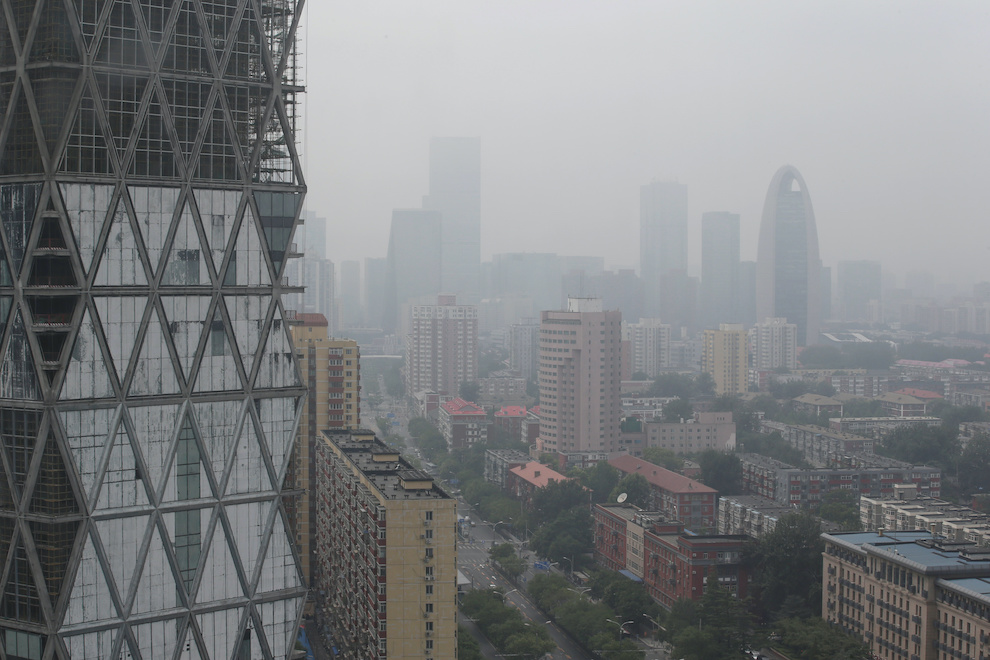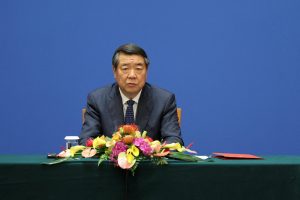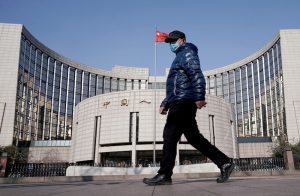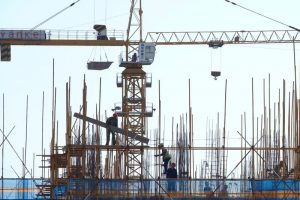China property sales plunged in April at the fastest pace in 16 years as Covid lockdowns sapped demand despite efforts by financial officials to ease borrowing limits and revive the sector.
Sales by value plummeted 46.6% from a year earlier, which was the biggest fall since August 2006, and worse than the 26% drop endured in March, according to calculations based on data from the National Bureau of Statistics (NBS) released on Monday.
Property sales in January-April by value fell 29.5% year-on-year, compared with a 22.7% decline in the first three months.
A further cut in mortgage loan interest rates for some home buyers announced by Chinese authorities on Sunday did little to convince investors and analysts that it could revive sluggish property demand.
The sector, a major economic growth driver, has been in a severe slump since last year after the authorities clamped down on excessive borrowing by developers, spooking many would-be home buyers who feared projects would not be completed.
ALSO SEE: China Further Eases Loan Guidance to Bolster Property Market
Buyers’ Sentiment Hit
More than 80 cities have taken steps to boost demand since the beginning of the year, including subsidies, reductions in mortgage rates and smaller down payments.
However, the property outlook has remained bleak amid protracted Covid-19 curbs in dozens of cities, including Shanghai, currently in its seventh week of lockdown.
“With no reopening in sight, a small cut to the lower limit for mortgage rates provides little support to potential first-time home buyers,” Nomura chief China economist Ting Lu said.
“Although we expect this cut to provide a benefit, the positive impact could be quite limited, as stringent anti-Covid measures appear set to continue for an unspecified time,” Lu said in a note on Monday.
He added that uncertainty, a lack of confidence, an increase in the unemployment rate and falling income growth have all contributed to the slump in new home sales.
Big Developers Told: Issue Bonds
Chinese officials have asked three major private property developers to issue bonds this week to help boost market sentiment, two sources with direct knowledge of the matter said on Monday.
The authorities informed Country Garden, Longfor Group and Midea Real Estate about the plan late last week, the sources said. They declined to be named because they were not authorised to speak to media.
Financial intelligence provider REDD first reported about the plan on Monday. The report also said Chinese banks have been asked by regulators to buy those bonds.
China’s property sector has been hit by a series of debt defaults and requests for payment extensions. Many developers said they have not been getting new credits from banks despite repeated assurances by policymakers and regulators that they would help the sector to avoid defaults and would ask banks to extend loans.
Financial regulators including the China Securities Regulatory Commission (CSRC) and the Shenzhen Stock exchange issued separate statements early this month highlighting the importance of supporting normal refinancing needs in the sector, including via corporate bond issuance.
President Xi Jinping also called for a stable and healthy real estate market at a late April Politburo meeting.
Sources said last month that regulators have asked developers to apply for quotas to issue bonds, although some developers were sceptical that there would be demand for the bonds in the market.
“We still have some quota left, but no banks would buy property bonds right now unless they were ordered by the authorities,” one Hong Kong-listed developer who had problems meeting debt obligations said. The developer declined to be identified due to the sensitivity of the issue.
Hang Seng Property Index Up
Hong Kong’s Hang Seng mainland properties index rose 1.2% in late morning trade, narrowing from a 3.35% gain at the opening. The broader market was down 0.2%.
Nationwide property investment by developers fell 2.7% from a year earlier in January-April, after a 0.7% gain in the first three months of the year.
In April, property investment fell 10.1% year-on-year, the fastest pace since December, compared with the 2.4% decline in March.
New construction starts measured by floor area plunged 44.19% from a year earlier, the fastest pace since January-February 2020.
New construction starts fell 26.3% in January-April from a year earlier, after a 17.5% decline in the first quarter of the year.
Property developers, hoping for the market to bottom out in the second quarter, are revising down investor expectations for full-year sales after a 50% plunge in the first four months.
“Sales recovery is key for liquidity, without which policy effects will be discounted,” Citi said in a report. “More ‘real’ measures before a permanent loss on demand is needed for a faster recovery.”
Japanese construction equipment maker Komatsu reported a 16.6% fall in the use of its machines in China in April, extending a 17.3% decline in March.
• Reuters with additional editing by Jim Pollard
























